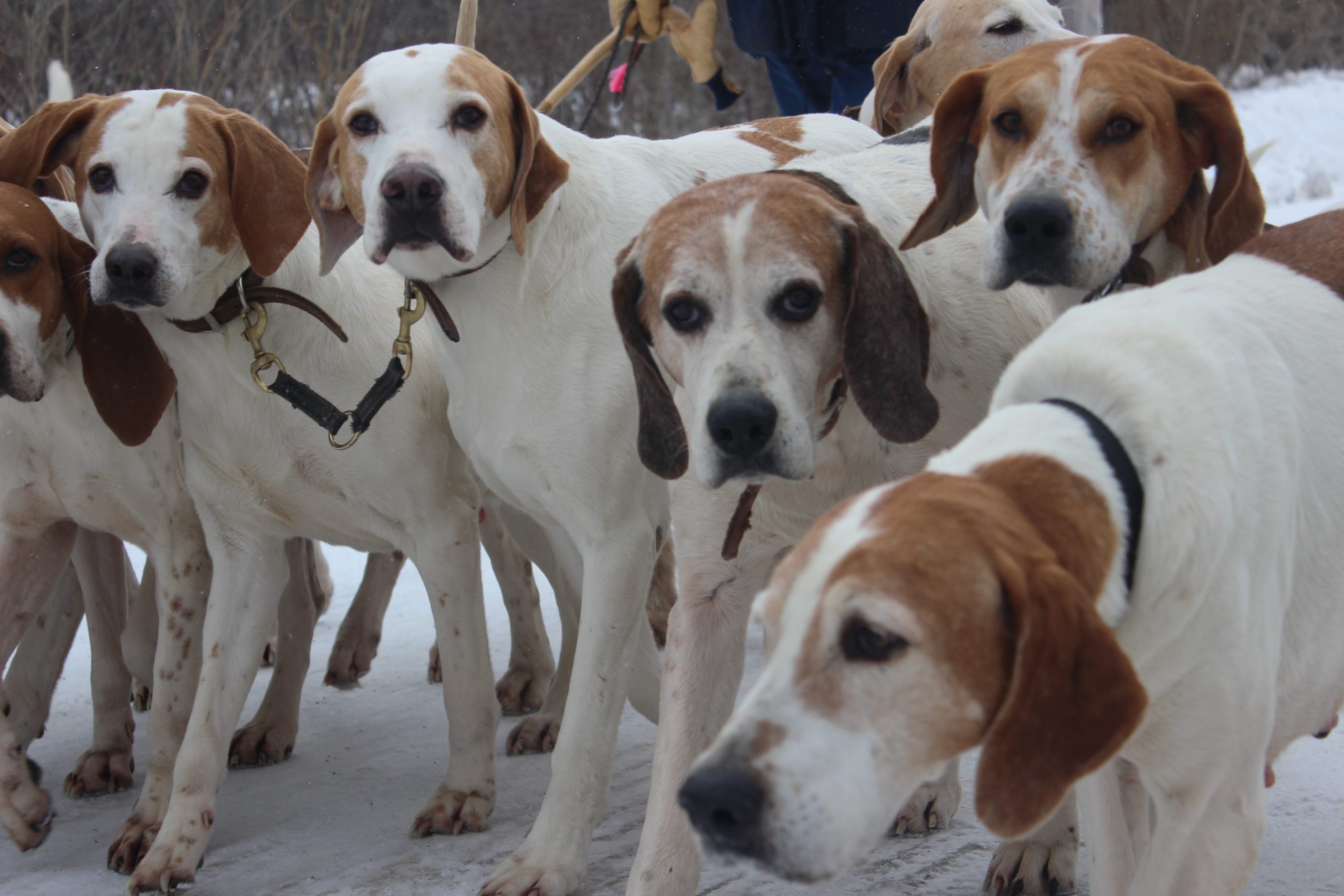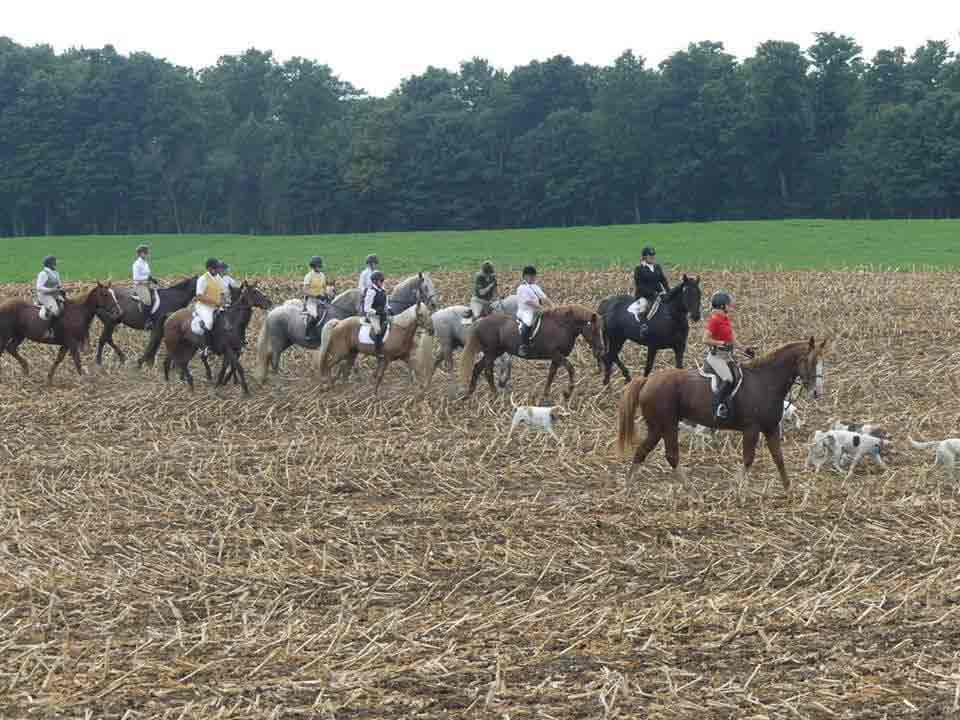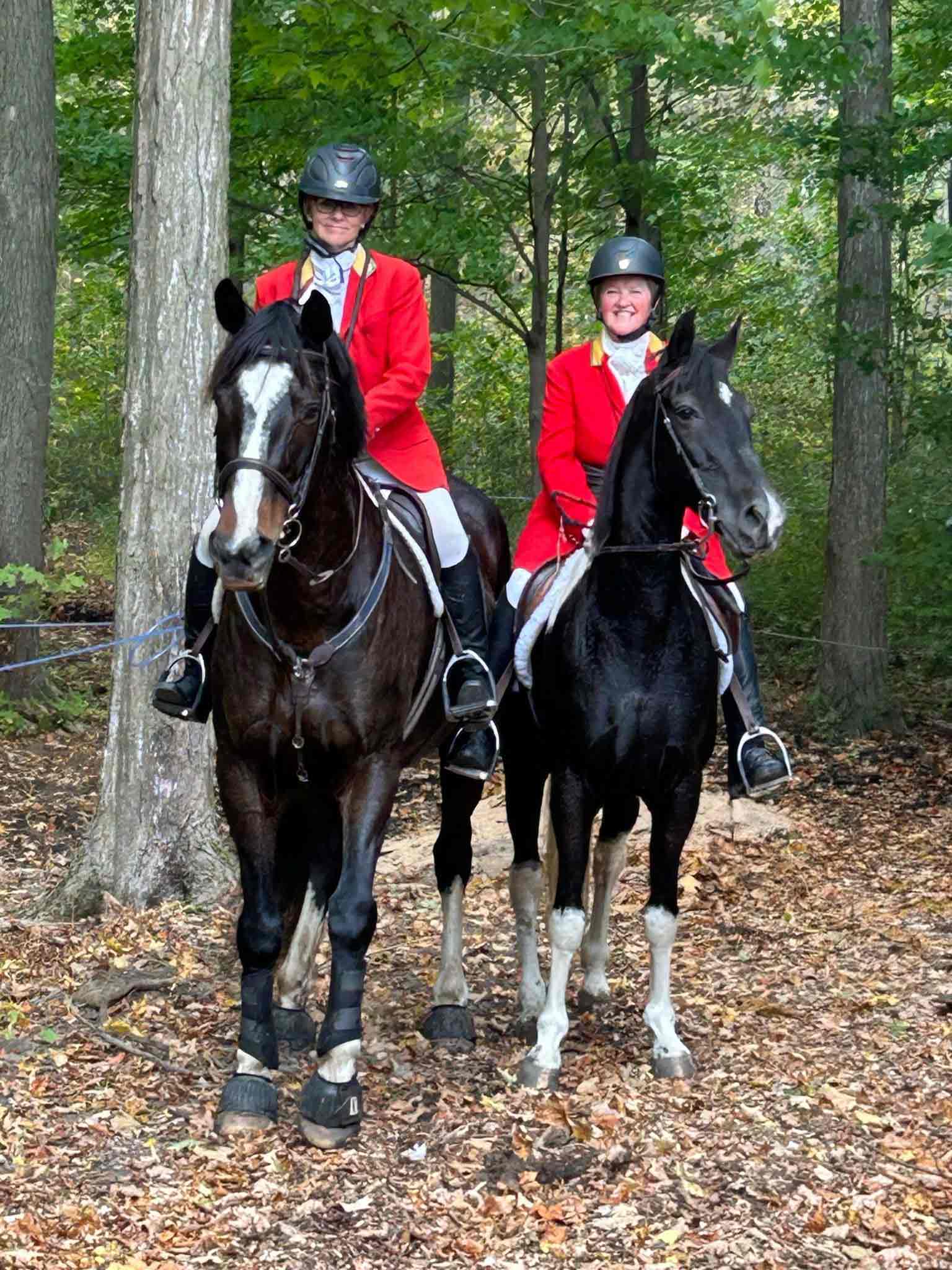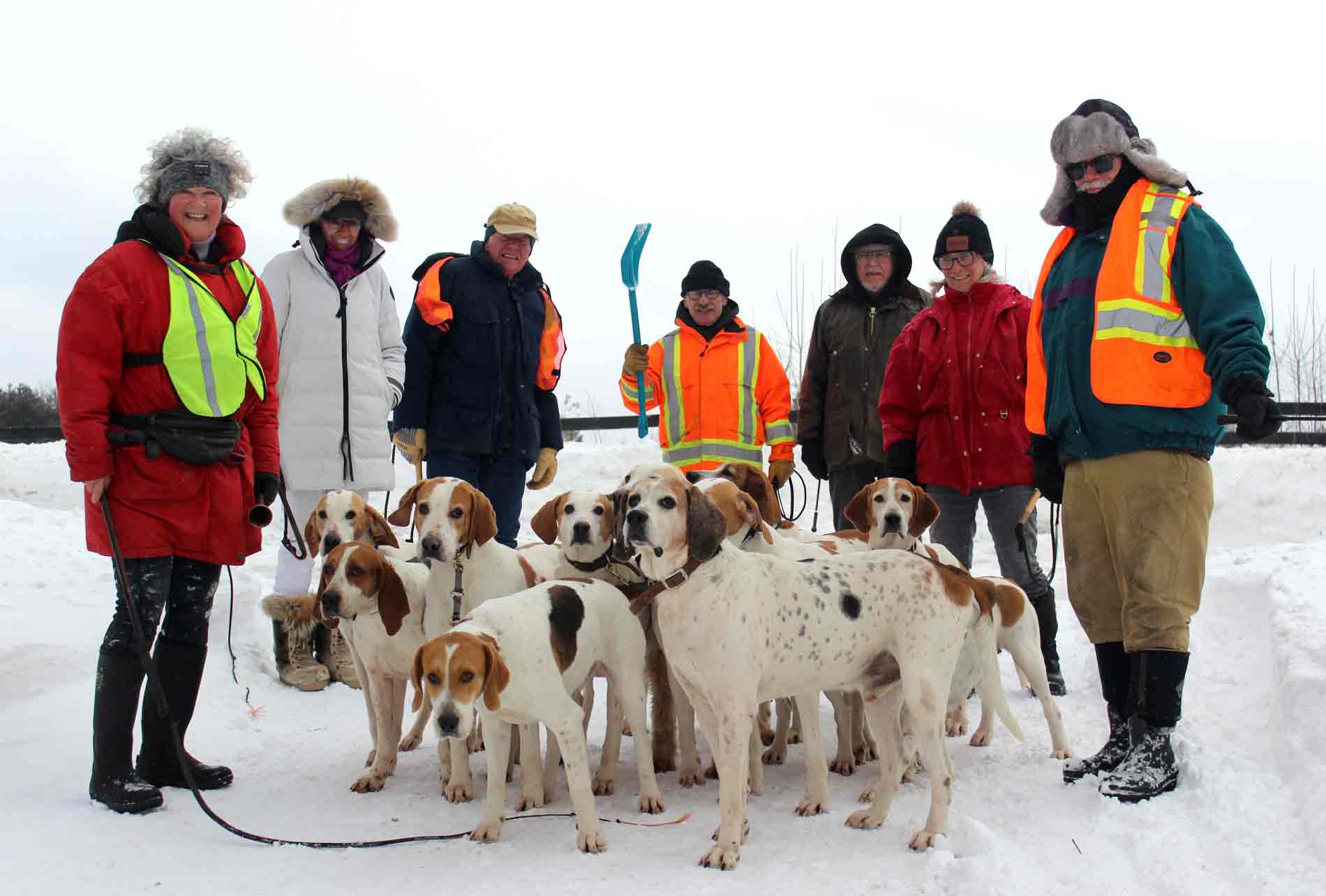PUSLINCH – A pack of foxhounds runs down a wooded trail, attentively pursuing a scent. Behind them is a thundering sound of hooves, as people on horseback follow close on their heels.
Riding to hounds is a sport that dates back to 17th century England, and in Wellington County it’s still going strong, with the Wellington-Waterloo Hunt Club (WWHC) celebrating its 60th anniversary this year.
The WWHC is a volunteer-run registered non-profit with about 50 members and 14 hounds.
All are welcome to join, hunt club joint master Paul Sherman told the Advertiser.
“You don’t have to be a millionaire to come hunting,” he said with a laugh, adding the club is particularly encouraging young people to get involved.
“The future of this sport is in getting the younger generations involved in it – otherwise it will just be old fogies like me,” he chuckled.
Sherman has been part of the WWHC since 1995.
“It’s fun, come and try it,” he said.
Sherman said there’s a misconception about the club, as while “hunt” is in the name, no animal is hunted and no weapons are involved in this modern rendition of a traditional sport.
Instead of sending the hounds after foxes or rabbits, an artificial scent is dragged along a planned course for the hounds to find and chase.
This is called a drag hunt. Drag hunting is more controlled than a live hunt because the hounds follow a predetermined course, not an unpredictable animal.

The Wellington Waterloo Hunt Club has about 14 foxhounds who are kenneled in Puslinch. Photo by Robin George
“When the hounds find the scent, they will run the line with as much enthusiasm as they have for a real live creature,” wrote former huntsman Jim Kopinak in 2001 in the History of the Wellington-Waterloo Hunt.
At the end of the hunt, the hounds are rewarded with a deposit of treats.
The WWHC website describes the club as “A group of riding enthusiasts dedicated to nature, hounds and horses together in camaraderie and sport.”
And though the format of the hunt has changed over time, the club continues to “embrace the traditions associated with our sport” including the roles of master of the hunt, huntsman, fieldmaster and whippers-in.
The huntsman casts the hounds, and the fieldmaster and whippers-in, or assistant hunstmen, lead and observes the hounds. The huntsman is also responsible for the hounds’ day-to-day welfare, including walks, vaccines and a breeding program.
During a hunt, the huntsman carries a horn and uses it, along with their voice, to command the hounds, Sherman said.
The WWHC’s first joint masters of the hunt were founder Gordon Pass and his friend Clarence Robbins. The second master of the hunt was Ed Brady.
The first huntsman was Michael Sinclair-Smith, followed by Tony Gibbons, David Jones, Jim Kopinak, Bill Spurrier, Paul Sherman, Kris Baker (nee Hallman) and Pat Van-Esch Dussault.

Though riders in the Wellington-Waterloo Hunt Club usually wear traditional jackets, they were excused on this hot September day for a more comfortable, casual look. Photo by Paul Church
Current hunt officials are president Patrick Le Blanc, vice president Judy Barr, hunstman Kris Baker, and joint masters Paul Sherman and Robin Haul.
The club first registered with the American Foxhound Association (now called the Masters of Foxhounds Association of North America) in 1964 and was recognized by the association in 1965.
“The hounds were originally kennelled at Passfields, Master Gordon Pass’ farm, located on the south side of Pinebush Road [and] Townline Road in the City of Cambridge, Kopinak wrote.
This was the home of the WWHC hounds for about 20 years, until the kennel was transported to its current home in Puslinch.
The hunts take place across Wellington County, Waterloo Region and the surrounding areas.
Getting involved
Volunteer opportunities with the club include walking the hounds, clearing trails and supporting with hunts, hunter pacers and social events such as the Hunt Ball.
This year, the ball is set for Nov. 15. “People dress up in their finery and have a sit-down dinner” followed by awards, live music and dancing, Sherman said.
To recognize the club’s 60th anniversary, members are planning a busy season, including a big hunt breakfast after the first hunt, trail rides, hunter pacers and social gatherings such as pub nights or quiz nights.
A hunter pacer is similar to a drag hunt, but without the hounds. Instead of following the pack, the riders follow a course with storyboards that offer clues as to what speed the horses should go for the next section. For example, if the storyboard says “the hounds are in full cry,” that means it’s time to really pick up the pace, Sherman said.
Hunter pacers are not a race – the goal is to accurately follow the clues and finish the course in the same amount of time as the huntsman, or whoever else went first to set the optimum time that day.

Whipper-in Robin Hall, left, and hunstman Kris Baker in September 2024. Photo by Paul Church
Sherman said club volunteers do a lot to maintain trails and keep them safe. The trails are mostly on the private property of dozens of landowners who give the club permission to ride on their land.
Guests are welcome to register to ride in a hunt, without becoming members, for $100 per hunt. People under 18 are invited to ride free of charge for up to five hunts a year.
“We are not here to make money for ourselves or the members,” Sherman said, noting the money from membership fees and guest rides goes to pay for the upkeep of the hounds and kennels.
The club’s only staff member is the kennel man, Sherman said, who visits the kennels daily to feed the hounds and clean the lodges.
About half of the club’s members are riding members, while the other half are associate or social members who “don’t ride but help with the hounds and come out to hunts, follow on foot or in cars and support us.
“They’re part of the social fabric of the club,” Sherman said. “For some of us it’s the love of the hounds that makes the hunt club,” he said. “For others, it’s just coming out and having a jolly good ride.”
But regardless of what draws each member to join, “without the pack of hounds there would be no club,” Sherman said.
“How else could one describe the feeling of galloping on under a sparkling blue sky on a crisp autumn day with the trees ablaze in their fall glory and a pack of hounds in the front in full cry except: ‘If there is a heaven on Earth, it is this, it is this!’” Kopinak wrote.
For more information about WWHC events, volunteer opportunities, membership, or to register to ride visit wwhunt.ca.



